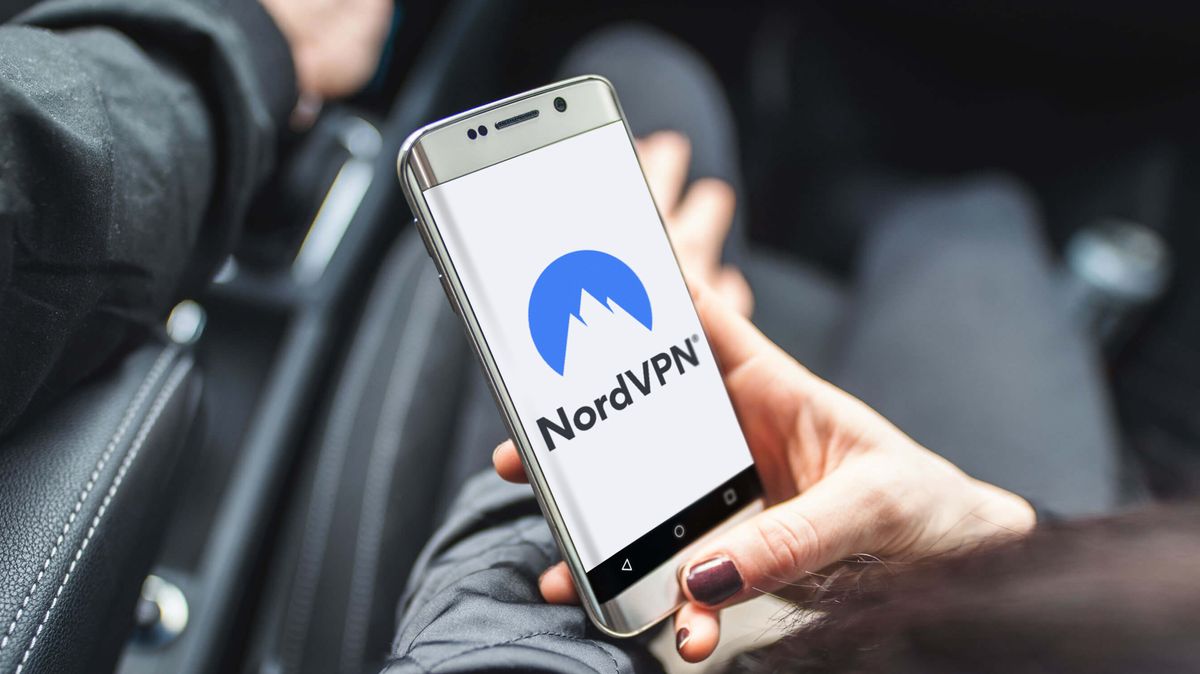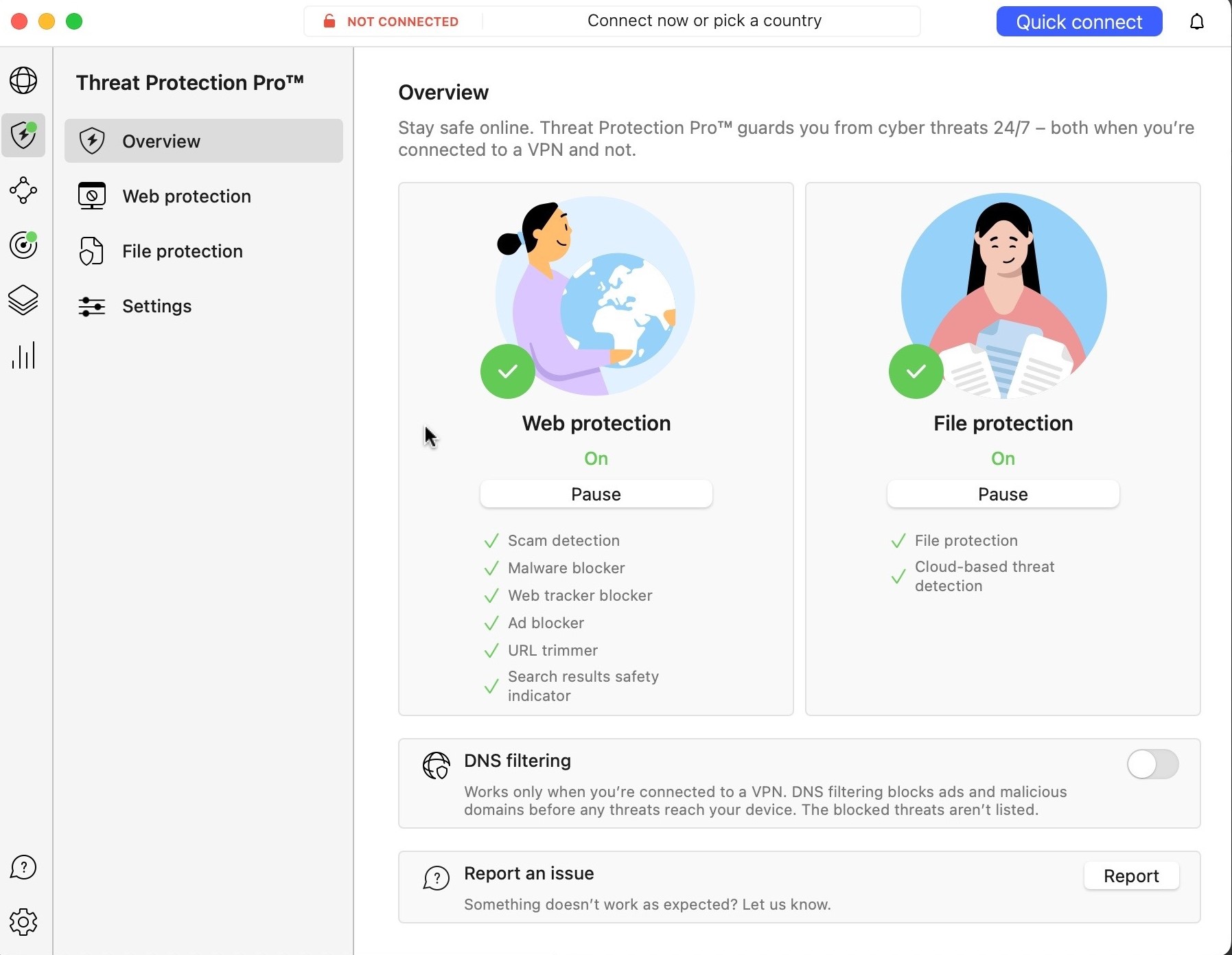NordVPN now ranks among the top tools for avoiding online shopping scams
NordVPN Threat Protection Pro got the bronze medal out of 35 competitors

TechRadar's tried and tested best VPN service isn't just great for boosting your online privacy – it's also one of the top solutions for combating fake online shop scams.
Independent auditors at AV-Comparatives ranked NordVPN's malware and ad-blocker tracker as the third-best tool against online shopping scams out of 35 similar pieces of software.
The provider launched the upgraded version of its tracker blocker, Threat Protection Pro, back in June in order to offer users better protection against ever-more sophisticated cyberattacks. At that time, AV-comparatives certified NordVPN as an anti-phishing tool – the first VPN provider to receive such an award.
How NordVPN protects you from fake shops online
"Fake shopping websites are a growing problem for shoppers worldwide. They look like real e-commerce platforms and often use professional designs, fake customer reviews, and tempting discounts to trick buyers," said Domininkas Virbickas, head of development at Threat Protection. "We put our greatest effort into protecting our customers from the severe consequences caused by these sites."
Available on Windows and macOS only at the time of writing, Threat Protection Pro is a boosted version of its old tracker, malware, and ad-blocker integrated directly into the virtual private network software.
While what's now known as Threat Protection Lite blocks harmful websites, trackers, and ads on a DNS level, and is only active when connected to the VPN, Threat Protection Pro goes the extra mile to fight back more sophisticated attacks like fake online shops, phishing, and other forms of malvertising. The latter works at the network level, scanning all the traffic directly on the client's device with no need for an active VPN connection.
"This is exactly what market-leading antiviruses are doing," said the provider.
NordVPN's new tool has now proved to live up to the provider's promises against online shopping scams. During the AV-comparatives' testing, it detected almost 70% of fake shops. Two dedicated browser extensions were the only tools to outdo it.
It's worth noting that, contrary to Threat Protection Lite which is included with all plans, Threat Protection Pro is exclusive for Plus and Ultimate subscribers only.

How to spot online shopping scams
While NordVPN can effectively protect you against most online scams, it's still worth learning to spot red flags when you're buying something online from a site you don't know.
The VPN firm shares then some tips to help you stay vigilant during your online shopping:
- Be skeptical of unbelievable discounts. As a rule of thumb, if it's too good to be true, well, it probably is most of the time. The Nord team recommends comparing prices on trusted sites while being cautious of big discounts on popular items.
- Check website quality. Despite some cyber attackers getting good at it, many scams can still be easily spotted. You should look for poor grammar, low-quality images, or broken links.
- Look at the domains. Fake websites usually come with misspelled domains, so make sure to check this before clicking on it. Nord also suggests checking for a valid SSL certificate – it comes as “https://” – and a padlock symbol to ensure that's a trusted connection. To be extra safe, use a URL checker to verify if the domain is safe – NordVPN has a free one.
- Background research is key. Everything looks legit and you're ready to buy? Before clicking on the button, you should do some extra research. Check the reputation of the retailers online to see what other users are saying about it. Take a look at the website's privacy policies, terms and conditions, and contact info to see if something doesn't add up.
- Beware of unusual payment methods. For obvious reasons, scammers generally prefer payments that are harder to be traced like crypto, gift cards, or wire transfers. Offering these methods isn't necessarily a sign of a scam, but you should be wary if the retailer insists on one of those.

Chiara is a multimedia journalist committed to covering stories to help promote the rights and denounce the abuses of the digital side of life – wherever cybersecurity, markets, and politics tangle up. She believes an open, uncensored, and private internet is a basic human need and wants to use her knowledge of VPNs to help readers take back control. She writes news, interviews, and analysis on data privacy, online censorship, digital rights, tech policies, and security software, with a special focus on VPNs, for TechRadar and TechRadar Pro. Got a story, tip-off, or something tech-interesting to say? Reach out to chiara.castro@futurenet.com